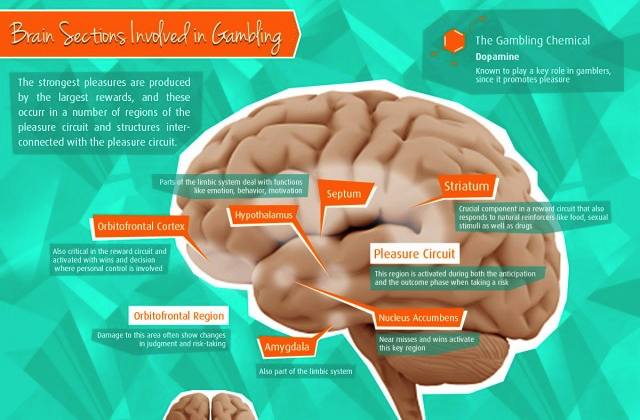The psychology of gambling delves into the intricate workings of the human mind when faced with risk and reward. It reveals how factors like gambling addiction, risk-taking behavior, and impulsivity in betting can significantly influence a gambler’s decisions. Many individuals underestimate the potential downsides, often falling victim to overconfidence in gambling, leading to detrimental patterns that can spiral into addiction. Additionally, persistent gambling myths can cloud judgment, causing many to make irrational bets rather than informed choices. Understanding these psychological aspects is crucial for fostering responsible gambling practices and mitigating the risks associated with this popular yet complex pastime.
Betting behavior encompasses more than just the act of gambling; it touches on the psychological nuances of human choice and risk engagement. The mechanics of gaming not only appeal to our desire for excitement but also highlight essential concepts such as risk assessment, impulsive decision-making, and the allure of winning against the odds. Emotional and cognitive biases often shape the gambling experience, leading to a range of outcomes that can either be thrilling or devastating. By exploring the underlying motives for participating in wagering activities, such as social interactions or escapism, we can gain insights into both healthy and unhealthy gambling habits. Ultimately, this exploration into gambling psychology uncovers the path towards more informed and responsible betting choices.
Understanding the Psychology of Gambling Myths
Gambling myths are pervasive, often misguiding individuals and influencing their betting behaviors. These myths create illusions of control and luck, leading gamblers to believe in supernatural factors that govern game outcomes. For instance, some players mistakenly think that a ‘hot’ slot machine will pay out soon after a series of losses, or that using specific systems can guarantee victories. Such misconceptions can drive impulsive gambling, leading to risky bets made based on flawed reasoning rather than a rational assessment of the odds.
Understanding these myths is pivotal in addressing gambling addiction and promoting responsible betting practices. By debunking misconceptions, we empower gamblers with facts, enabling them to make informed decisions reflecting the randomness inherent in most gambling activities. This educational approach is essential in reducing the lure of gambling and encouraging individuals to engage with it as a form of entertainment rather than a quick financial solution.
The Impact of Overconfidence on Risk-Taking Behavior in Gambling
Overconfidence can drastically alter a gambler’s approach to betting, leading them to take unnecessary risks based on inflated self-perceptions of skill. This is especially evident in games that require a blend of strategy and chance, such as poker or sports betting. Gamblers may overlook the odds in favor of a misguided belief in their abilities, driving them to increase their stakes unreasonably. This overestimation not only fosters a cycle of losses but can also contribute to the development of gambling addiction, as players chase their perceived prowess with reckless abandon.
Furthermore, the social aspect of gambling can amplify this behavior. Many individuals engage in betting within peer groups, where the desire to impress others can exacerbate overconfidence. The commentaries of fellow gamblers may further entrench the belief that certain individuals have a ‘lucky touch,’ intensifying the risk-taking behavior. Awareness and education around these psychological pitfalls can mitigate their impact, fostering a healthier gambling environment where rational decision-making prevails over blind confidence.
Frequently Asked Questions
What is the role of overconfidence in gambling behavior?
Overconfidence in gambling can significantly impact players’ decision-making processes. Research indicates that this psychological phenomenon leads individuals to believe they possess better winning odds than they realistically do. As a result, gamblers may take riskier bets, which can enhance their performance in some cases but often leads to significant losses. Understanding the influence of overconfidence is crucial for developing responsible gambling habits and making informed choices.
How does impulsivity contribute to gambling addiction among young adults?
Impulsivity is a key psychological factor that contributes to gambling addiction, particularly among young adults. This age group, especially those aged 21 to 24, is prone to making spontaneous betting decisions without fully considering the risks involved. Their developing brains, which are still maturing in areas responsible for impulse control, make them particularly vulnerable to addictive behaviors. Therefore, targeted education about the potential dangers of gambling is essential for fostering healthier betting habits and preventing addiction.
| Key Point | Explanation |
|---|---|
| The Role of Overconfidence | Overconfidence can cause gamblers to take excessive risks, believing they have better winning odds than reality suggests. |
| Impulsivity in Young Bettors | Younger individuals, particularly those aged 21-24, display impulsivity that drives increased gambling behavior, particularly with the rise of in-game betting. |
| Risk-Taking Behaviors | Many gamble to escape reality or seek thrills, often exacerbated during stressful times as a coping mechanism. |
| Health Implications of Gambling Addiction | Gambling addiction can result in serious psychological and physiological issues, affecting finances, relationships, and mental health. |
| Demystifying Gambling Myths | Common myths about gambling can lead to irrational decisions; understanding the actual odds and randomness is vital for responsible behavior. |
Summary
The psychology of gambling explores the intricate web of human behavior and decision-making surrounding betting activities. As we’ve seen, factors such as overconfidence, impulsivity, and risk-taking not only drive participation in gambling but also dictate how individuals face the potential consequences of their actions. The pervasive influence of myths and misconceptions further complicates the landscape, often leading gamblers to make irrational choices based on flawed beliefs. Understanding the psychology behind gambling is essential for fostering responsible betting habits and promoting healthy coping mechanisms among those tempted by the thrill of gambling. In a world where gambling can seem both exhilarating and daunting, enhancing our awareness of its psychological dimensions can empower individuals to approach betting as a form of entertainment rather than a means of escape or a solution to life’s difficulties.
